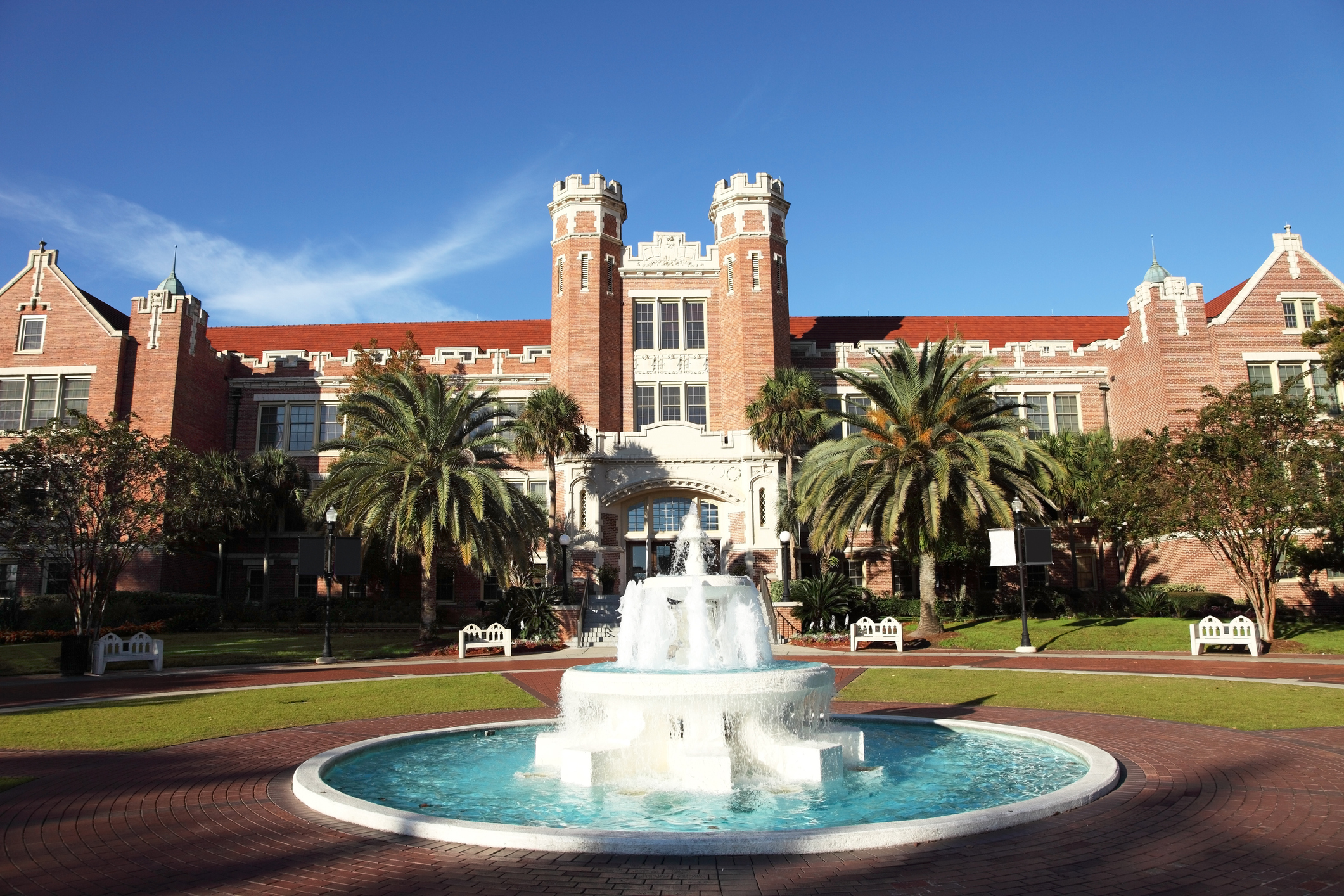Best Online Colleges in South Carolina
Tucked next to the Atlantic Ocean, South Carolina is known for its warm weather, sandy beaches, and Southern hospitality. With colleges located in bustling cities like Charleston and Myrtle Beach, as well as smaller cities with ample Southern charm, South Carolina has something for any college student.
South Carolina pairs its rich history and culture with exciting opportunities for students and recent graduates. Many cities, like Columbia, offer a cost of living below the national average, which can save you out-of-pocket expenses as a college student.
Whether you live in South Carolina or not, you can also take advantage of the affordability and flexibility of earning an online degree at one of the best colleges in South Carolina.
Explore Featured Programs
Learn about start dates, transferring credits, availability of financial aid, and more by contacting the universities below.
Best Online College in South Carolina
University of South Carolina-Columbia
Columbia, SC
- 4 year
- Campus + Online
The University of South Carolina's online degree programs include more than 50 options spanning eight colleges. You can choose to complete a bachelor's, master's, or doctoral degree.
Fully online undergraduate programs include integrated information technology and interdisciplinary studies in service management. You can also choose from an array of online graduate degree programs from the school's colleges of education, engineering and computing, hospitality, retail and sport management, information and communications, law, library and information science, music, nursing, and public health.
- In-State$12,288
- Out-of-state$34,534
- In-State$13,374
- Out-of-state$29,760
- Retention Rate91%
- Acceptance Rate61%
- Students Enrolled36,579
- Institution TypePublic
- Percent Online Enrollment61%
- AccreditationYes
 How We Rank Schools
How We Rank Schools
To create this ranking, BestColleges sourced the most recent data available from the National Center for Education Statistics and the U.S. Department of Education College Scorecard. We then ranked each school according to the top variables college students selected in our College Choice and Admissions Survey. To learn more, check out our full rankings methodology or read the summary below.
10 Fast-Growing Jobs in South Carolina
The South Carolina job market has a variety of positions projected to grow in the coming years, many of which offer above-average salaries. For example, the U.S. Department of Labor projects that many South Carolina tech careers, including information security analyst and software quality assurance analyst, will grow by 8-10% from 2023-2025 and provide competitive pay.
Attending a South Carolina college can plug you into an alum network and help you connect with local industries in the state. And, if you live locally, you should consider pursuing an internship in one of these fields while still attending school.
| Job | Job Growth 2023-2025 | Average Annual Wage 2022 |
|---|---|---|
| Information Security Analyst | 9.7% | $102,270 |
| Data Scientist | 9.4% | $100,550 |
| Insurance Underwriter | 8.8% | $68,750 |
| Operations Research Analyst | 8.8% | $83,830 |
| Software Quality Assurance Analyst or Tester | 8.7% | $87,670 |
| Veterinary Assistant or Laboratory Animal Caretaker | 8.7% | $32,450 |
| Physician Assistant | 8.6% | $106,200 |
| Medical and Health Services Manager | 8.3% | $114,970 |
| Physical Therapist Assistants | 7.8% | $63,330 |
| Software Developer | 7.8% | $105,360 |
Cost of College in South Carolina
According to the National Center for Education Statistics, the national average tuition and fees for a public four-year university was $9,596 for the 2021-2022 academic year. For that same year, the average cost of tuition and fees in South Carolina was $12,605 for an in-state resident.
Although the typical tuition and fees in South Carolina are above the national average, some colleges offer a flat, discounted rate for online tuition. Some schools also allow out-of-state distance learners to pay in-state rates. Additionally, online students often pay less in certain student fees since they’re not on campus.
You can also save money on tuition by applying for grants and scholarships. Other ways to decrease out-of-pocket costs include setting up a budget and taking prerequisite classes at a community college.
| Institution Type | Average Annual Tuition and Required Fees |
|---|---|
| Public 4-year (In-State) | $12,605 |
| Public 4-year (Out-of-State) | $33,217 |
| Private 4-year | $27,840 |
| Public 2-year (In-State) | $4,991 |
| Public 2-year (Out-of-State) | $10,330 |
Frequently Asked Questions About Online Colleges in South Carolina
You can earn a bachelor’s or graduate degree online from the University of South Carolina. The college offers dozens of online courses and degree programs that can be completed 100% online.
Note: The insights on this page — excluding school descriptions — were reviewed by an independent third party compensated for their time by BestColleges. Page last reviewed February 15th, 2024.
Explore More College Resources

Best Colleges in Florida + Full List of Schools
Check out our guide to the best colleges in Florida to learn about education options and career paths in the Sunshine State.

by Reese Lopez
Updated August 19, 2024



